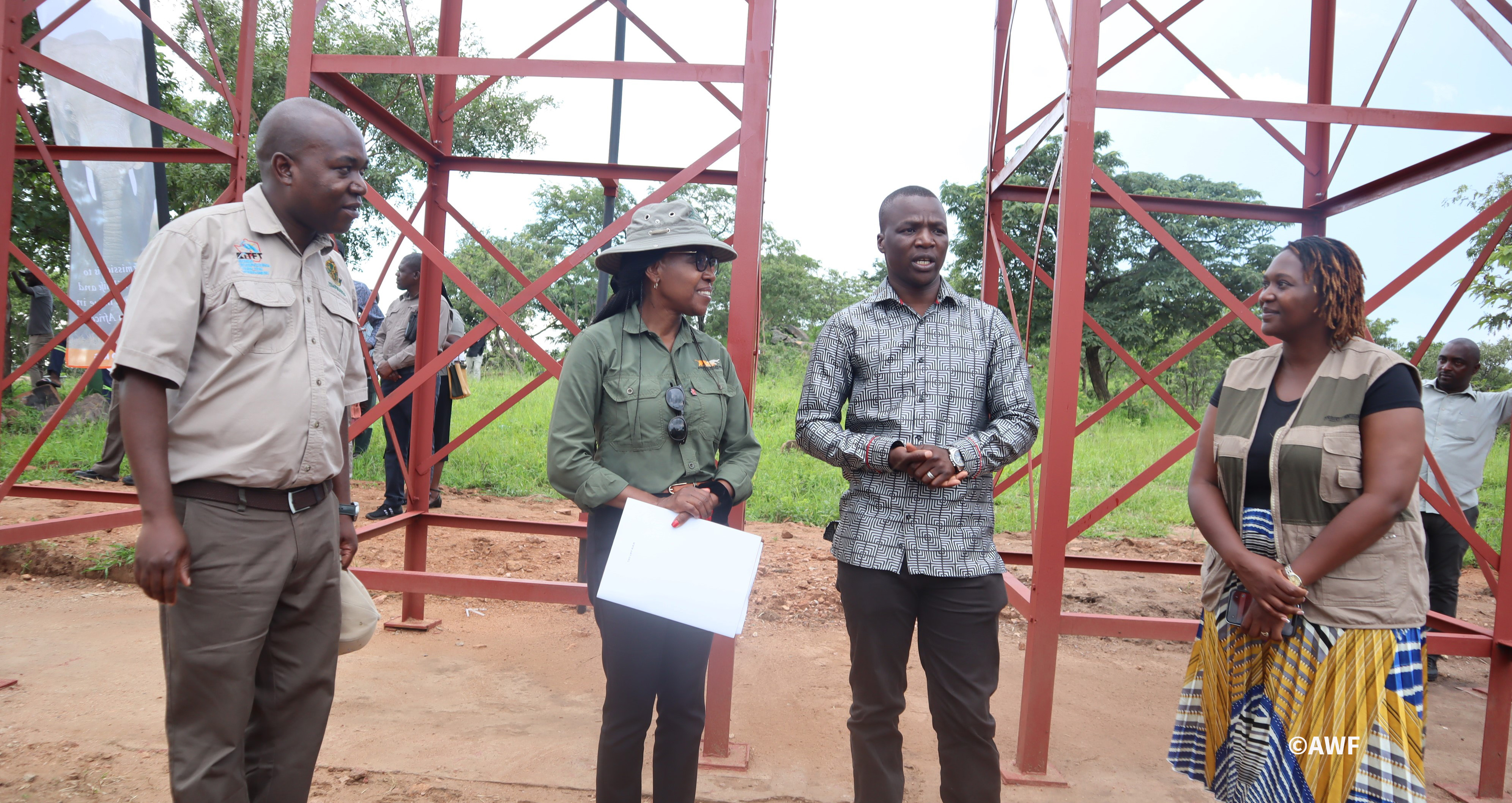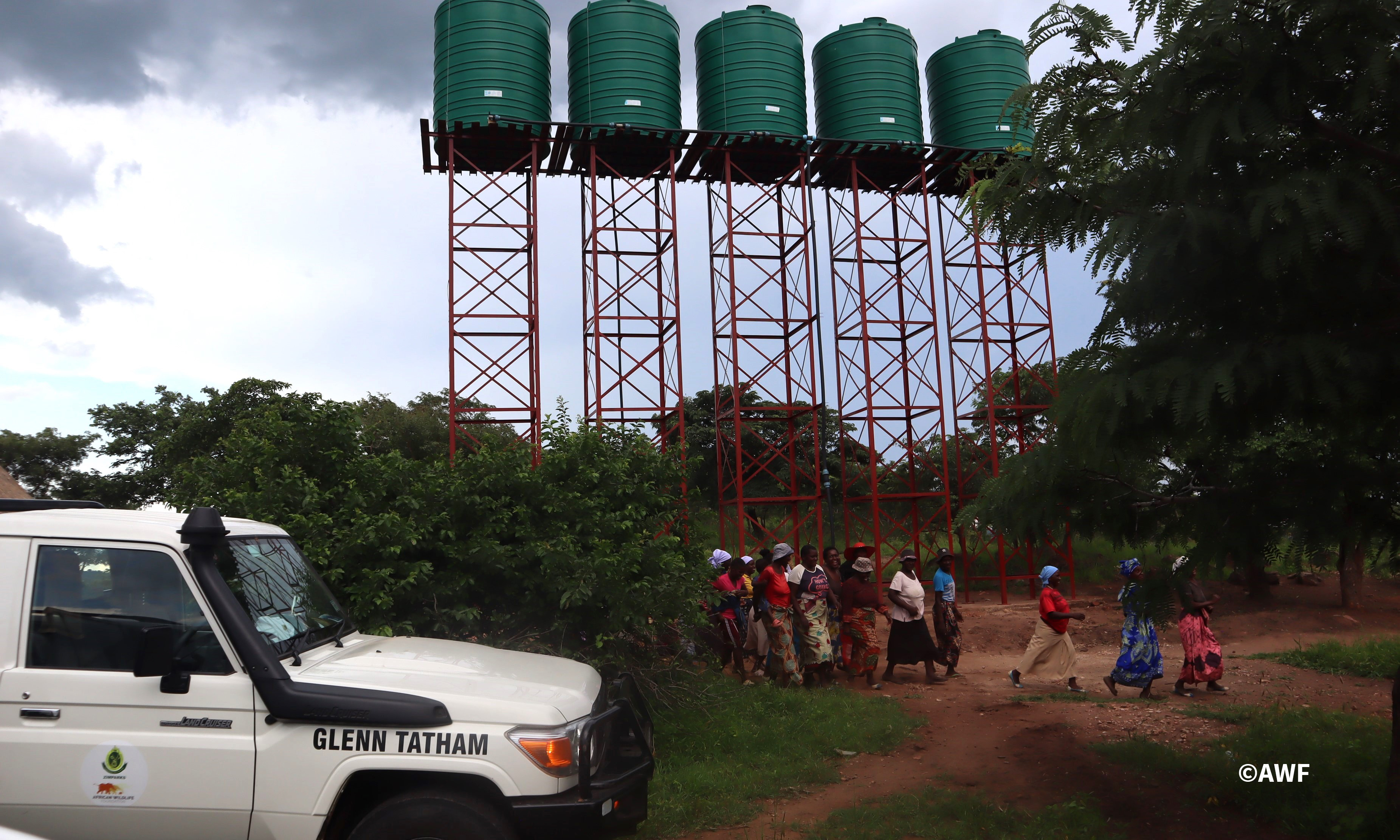Environment Minister Visits Mid Zambezi, Lauds AWF Conservation Efforts
General Inquiries
Tel:+254 711 063 000
Ngong Road, Karen, P.O. Box 310
00502 Nairobi, Kenya

(Harare, Zimbabwe-February 9, 2024)- Zimbabwe’s Deputy Minister of Environment, Climate and Wildlife Honorable John Paradza made a three-day visit to the Mid Zambezi Valley communal areas for a community engagement exercise to get firsthand information on human wildlife conflict concerns and possible mitigation measures from communities.
The visit, which was done in one of the African Wildlife Foundation’s (AWF) priority Landscapes spanned from 7-9 February and saw the Deputy Minister getting information about human wildlife conflict interventions implemented by AWF in partnership with the Zimbabwe Parks and Wildlife Management Authority (Zimparks), Rural District Councils and other development partners.
During the visit, the Deputy Minister toured the Hurungwe Hotel Village Community Project where AWF in partnership with Zimparks and Hurungwe Rural District Council recently played a critical role in providing safe and clean water for domestic use through the drilling of a borehole and installation of 5 X 10 000 liters water reservoir tanks. Supported by funding from the D.N Batten Foundation, the drilled borehole has the capacity to produce 6000 liters of water per hour and is now providing water to 100 households within Hotel Village Community. The community had no access to a clean and nearby water source for more than four decades.
“If we come this side, we can tell people that this is what we are doing with our partners. We are very happy with the project, and we would like you [African Wildlife Foundation] to continue doing the good work, not only this side, look at the whole landscape and people who are affected by conflict with wildlife, they are many,” Honorable Paradza said while commending AWF for providing water to communities.
“What you did for the community is very important, this is a welcome development, we had no access to a nearby clean water source for a long time; if I had an opportunity, I would have shown you some of the unprotected wells that we used to fetch water from, now we are getting water straight from the taps like the one that you seeing there. So far AWF has installed 7 taps for us, Friday Innock, Hotel Village headman said.
Meanwhile AWF Zimbabwe Country Director Olivia Mufute noted that although the Zimparks-AWF and Hurungwe Rural District Rural District Council partnership has yielded positive results on ground, work continues as stages for the setting up of the Hotel Village Nutrition Garden are already in progress. Community members will focus on growing horticulture products like tomatoes, vegetables, carrots and other crops in the garden.
“In addition to the nutrition garden, AWF in partnership with Zimparks will also capacitate young people to venture into fish farming, a move that is capable of providing income for their [young people] needs,” Mufute said.

Clear Water reservoir Tanks.
“We have seen the work done by AWF, they have drilled a borehole…… and the water is now being supplied to families. The upcoming Hotel Village Garden Project will support the issue of jobs; this supports the role of the government to create a conducive environment for business,” noted Tapiwa Masenda, Mashonaland West Youth League Chairman.
Located in Hurungwe District, North of Zimbabwe, Hotel Village is one of the areas affected by human wildlife conflict issues.
In Mbire District, Honorable Paradza handed over certificates to 43 community wildlife scouts who underwent a basic and advanced ranger training course at the Zimbabwe Institute of Wildlife Conservation (ZIWC) with funding support from AWF under the ongoing Swedish International Development Agency (SIDA) funded ‘UTARIRI - Integrated and Adaptive Biodiversity, Climate and Livelihoods Project in the Zambezi Valley, 2022-2025.’To date, a total of 120 community wildlife scouts have been trained on basic ranger skills supported by AWF through funding support from the European Union and other partners.
The Deputy Minister commended the training of community wildlife scouts who act as the first line of defense against all human wildlife conflict cases reported in the local communities.